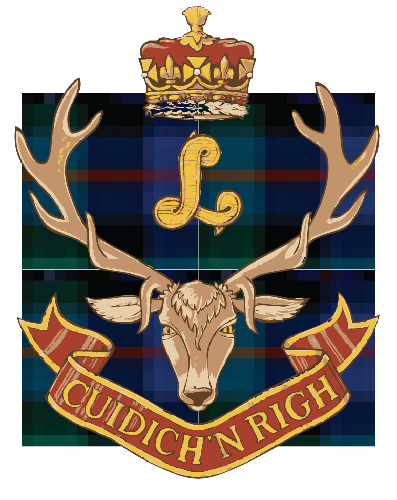He's a sergeant by day and a corporal by night.
February 17, 2014 - Government of Canada He's a sergeant by day and a corporal by night.
And whoever coined the American Army's “Be All You Can Be
”, obviously met Canadian Sergeant Dave Strachan.
One of a handful of soldiers who was in two foreign forces prior to joining the Canadian Army, Sgt Strachan serves the people of Canada in a dual capacity: As a patrol sergeant in the Royal Canadian Mounted Police and as a corporal in Vancouver's Seaforth Highlanders.
In his long, varied and eventful military career, he has soldiered in the most extreme conditions from the Brazilian rainforests, the arctic conditions of the Falkland Islands, on rock-pelted streets of west Belfast and the savannahs of central Africa. Sgt Strachan has lived the lives of several soldiers and could pass into the annals of military history as a soldier of fortune.
But that was never his calling. In fact, his call to serve drew him to a policing career that has seen his soldiering skills help through several operational police tours to Africa, Afghanistan and Jordan.
“As a patrol sergeant, I'm responsible for 16-18 Regular Members,
” says Sgt Strachan. “We do general duty policing: vehicle accidents, murder scenes, break-and-enters, threats, assaults, robberies, shoplifting and domestic disputes.
”
He has also served in other general duty detachments, in emergency response teams, serious crime units, the Integrated Homicide Team and with the Integrated Security Unit for the 2010 Winter Olympics.
Born in Toronto and raised in Kirkland Lake, Ont., military service is in the Strachan family history. His father served in the airborne battalion of the Princess Patricia's Canadian Light Infantry in the 1950s. But the younger Strachan's interest in the army would lead him on an unusual career trajectory.
 British Army
British Army
“I always wanted to be a soldier and was in army cadets during high school,
” he says. “I went to Germany and Wales with the cadets during the summer of 1981, but when they came home, I stayed overseas and joined the Queen's Own Highlanders of the British Army. It took six weeks to enrol.
” International soldiering appealed strongly to the northern Ontario teenager.
“There wasn't much happening in the Canadian army then and you might as well join an army that will take you overseas. For me, a Scottish regiment was the right choice.
”
Following basic training in central Scotland, Sgt Strachan joined his unit on the Falkland Islands following the war with Argentina in the South Atlantic. Returning to Britain after an unforgiving Falklands' winter, Sgt Strachan and the Highlanders trained and deployed on a two-year tour to Northern Island, during the height of the Irish Republican Army's insurgency.
“We did a lot of urban and rural patrolling and some riot control,
” he says. “I only did one year in Ireland since my contract ended.
” Strachan's final British infantry qualification was the Advance Soldiers Cadre, a section commander's course. “That course was Hell.
” he recalls.
Returning to Kirkland Lake, he wanted to join Canada's Army; however, administrative back-stepping delayed his enlistment. Frustrated, Sgt Strachan returned to Britain, intending to re-enlist with the Highlanders when on a whim in early 1985, he joined the French Foreign Legion, completing his basic training in Castelnaudary.
French Foreign Legion
“We started with a platoon of 45 and ended with about 30; mostly due to desertions,
” he recalls. “Legion training was basic and harsh. There was lots of PT and shooting; it was a ‘last man standing' kind of course but in many respects it was simple too because there were at least 15 different languages spoken in the platoon so the lessons themselves had to be simple.
”
Posted to French Guyana with the 3rd Infantry Regiment, Sgt Strachan's unit was tasked to provide security protecting the European Space Agency in Kourou.
“We were there for two years and we focussed on jungle and some commando training, but at the time there was a civil war in Suriname, so we had to deal with refugees flooding into our area. We also did some presence patrols on the border with Brazil, so there weren't too many dull moments.
”
Sgt Strachan was then transferred to the 2nd Parachute Regiment on the Mediterranean island of Corsica. As a paratrooper, he served three tours in as many years to the Central African Republic, Chad and returned once again to the jungles of South America.
Canadian Army
Releasing from the Legion in 1990, he joined Canada's Army Reserve in the Queen's Own Rifles. Two years later, he donned the red serge of the RCMP, but was forced to quit the army as it wasn't permissible to serve concurrently in the RCMP and the CAF. As a result of a policy change regarding concurrent RCMP/CAF service, he joined the Seaforth Highlanders in 2009.
“It was an easy choice since they're allied with my first regiment, the Queens Own Highlanders.
”
He now serves a valued role in the Canada First Defence Strategy where he trains his fellow soldiers in small arms weapons handling and as a volunteer with the regimental museum. Sitting at the rank of corporal, Strachan exudes the familiarity and confidence of his station in life. “This is where I come to get away from my regular job,
” he says. “The soldiers are keen and I can keep my hand in the military. I love the history of the regiment, and as a museum volunteer I get to read through the war diaries from the First and Second World War. This is where I come for fun.
”
Article by Capt Fraser Clark

